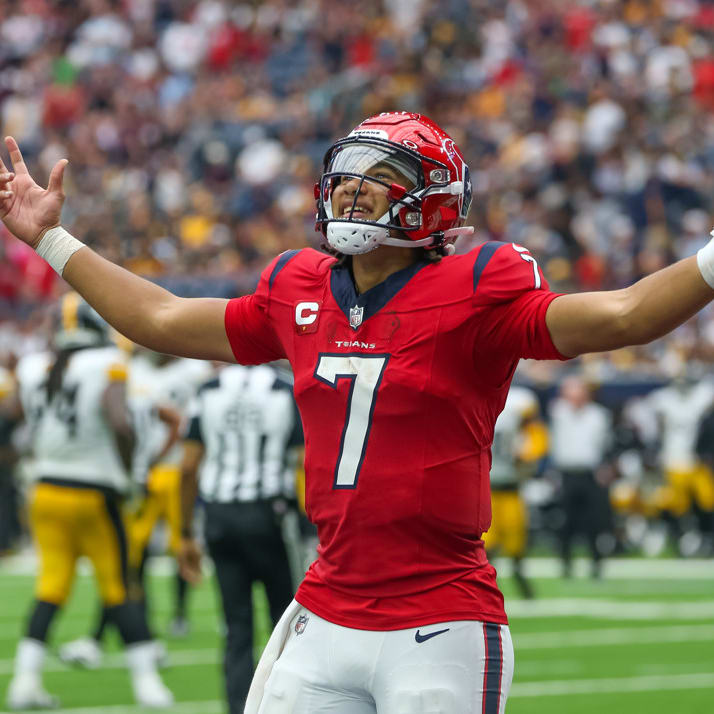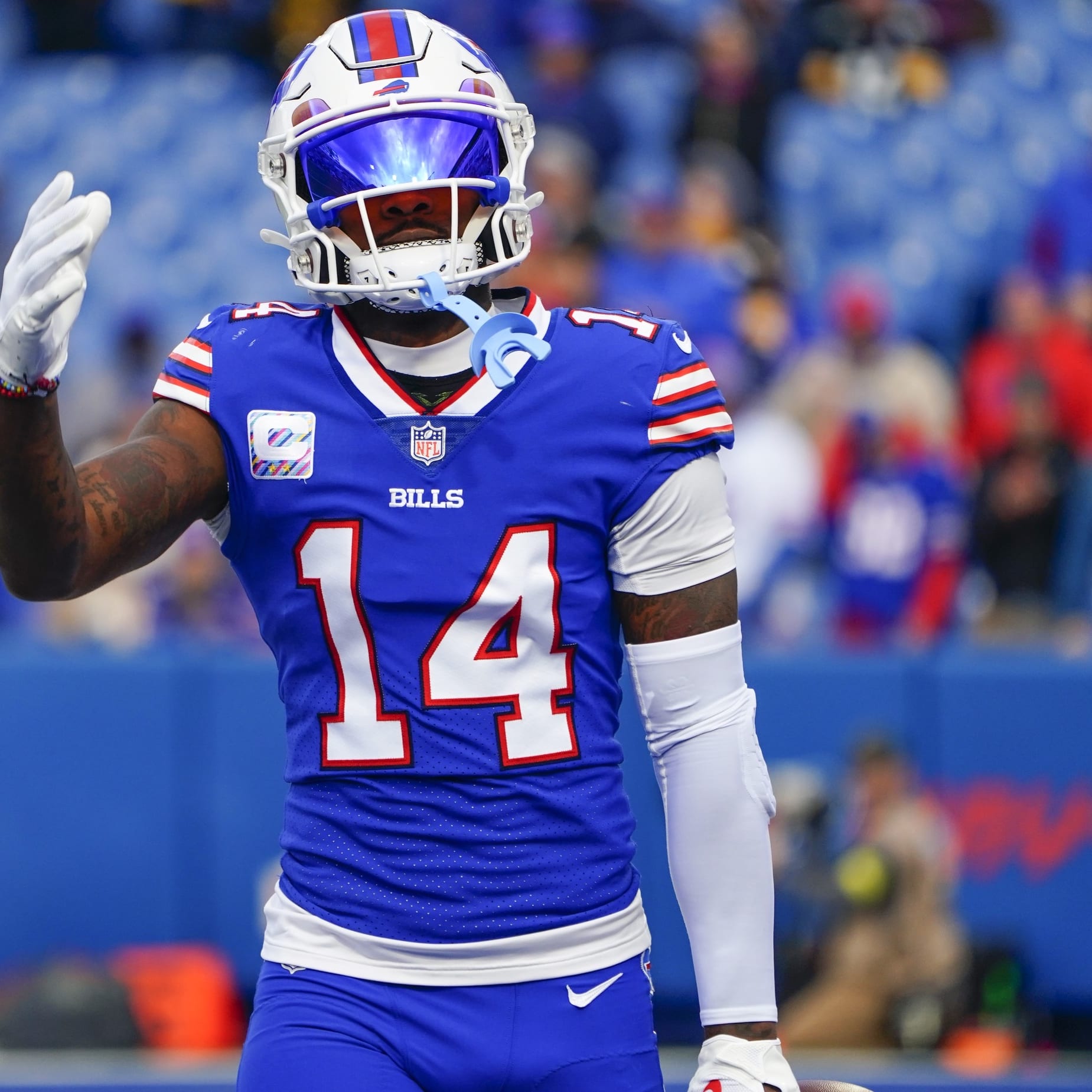This article is part of our NFL Draft series.
Day Two of the draft ended up being a rollercoaster with a heavy run on offensive/defensive line play to start, only for a bunch of skill position players and "quarterbacks of the future" to crescendo the later portions of the draft. Let's take a look at what it all means for fantasy purposes. And don't be afraid to check out John McKechnie's breakdown of all the action that occurred Day One!
Quarterback
Kyle Trask (64th overall), Tampa Bay Buccaneers 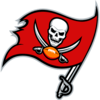
Leave it to the Buccaneers to draft a quarterback with next to zero mobility.
With a 6-foot-5 frame and weighing 236 pounds, Trask has the prototypical build of a starting quarterback and certainly appears to have the requisite arm strength to make all the throws at the NFL level.
Saying Trask struggles to make magic outside the pocket is probably putting it too nicely, however, considering the two-year Florida starter hardly can make plays moving in and around the pocket. It's unclear if Trask just simply doesn't make the necessary progressions with his reads or if the absurd weapons at his disposal never really forced him to showcase his cerebral edge, but whatever the case it's a legitimate knock in his profile.
Of course, all of that can be ironed out by learning from the similar statue-esque Tom Brady, but by the time the guaranteed Hall of Famer does retire, the bones of a Super Bowl team will probably be hollowed out by mounting salary cap concerns and aging weapons along the offense. I get the allure from a dynasty perspective -- and to be clear that's just about the only type of fantasy conversation that can be had about this pick -- but the upside feels like Joe Flacco. If that's the case, it's not really much of an upside at all.
Kellen Mond (66th overall), Minnesota Vikings 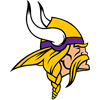
Kirk Cousins still has two years left on his contract with absurd cap hits for each season, so he's not going anywhere. That's why it's so interesting to see the Vikings take Mond, who becomes the seventh quarterback selected during the 2021 NFL Draft.
A four-year starter at Texas A&M, Mond never really made significant strides as a passer until last season when the Aggies essentially turned the senior into a game manager. The end result saw the 21-year-old finish with a career-best 63.3 completion percentage and a pristine 19:3 TD:INT ratio, but often billed as an electric dual-threat at quarterback prior to 2020, he saw a career-low 74 carries and a paltry 294 rushing yards across 10 games.
It was reassuring to see Mond confirm his trademark athleticism with a reported 4.62 40-yard dash at the Aggies pro day, but the lack of development throughout his collegiate career doesn't necessarily inspire confidence at the pro level. Still just 21 years old, he's not nearly the type of deep-to-intermediate passer as say, Jalen Hurts, but the duel-threat capabilities are roughly similar if you believe he can finally take the next step as a passer.
Davis Mills (67th overall), Houston Texans 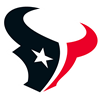
I'll refrain from expounding upon the Deshaun Watson situation, but suffice to say if Tyrod Taylor were to be thrust into the starting role, history says his backup shouldn't be holding a clipboard for very long.
The fact the Texans used their first pick of the 2021 NFL Draft on a quarterback many billed as the best "project" signal caller of the draft probably isn't ideal, but it's more or less a compliment considering Mills has all the physical tools to be a quality mid-tier starter, but multiple untimely injuries robbed him of that experience.
Nobody knows what will happen with the Watson legal situation so it's tough to make a fair assessment of Mills' fantasy value. At the very least he's more valuable in dynasty purposes than Trask, but that doesn't mean much.
Running Back
Javonte Williams (35th overall), Denver Broncos 
It was all but assured Williams would be the first running back selected on Day 2, but with the Dolphins waiting in the wings at pick 36, Denver gave up a fourth-round pick to slide ahead of the running-back needy team, locking in the North Carolina product as the third overall running back selected in the 2021 NFL Draft.
It's not immediately clear whether Williams will start over Melvin Gordon or if the two will split time in the backfield, ala the Gordon/Phillip Lindsay connection from last season. There's also a faint possibility Williams could have the backfield all to himself if Gordon were to miss some time should the NFL choose to suspend the two-time Pro Bowl back for a DUI dating back to Oct. 14. Regardless, you don't invest this type of draft capital in a running back unless you have plans to utilize him, so it doesn't take a gigantic leap to assume Williams might have the inside track on the larger share of the workload.
The Williams' truthers will point out his rugged running style should do well in Denver, especially when he eventually takes over the three-down workload after Gordon suffers his inevitable yearly injury. The NFL seems to be transitioning away from different backs having defined roles, but it still feels strange to see Gordon and Williams, neither of which are considered "excellent pass catchers", essentially set to do the same "things" in this backfield.
Perhaps more importantly for fantasy managers, neither Gordon or free-agent acquisition Mike Boone are under contract for next year, so while Williams probably slips dramatically down redraft rankings unless he has an astounding camp, the recently turned 21-year-old is still among the top handful of dynasty prospects in the same way AJ Dillon was thought to be the heir apparent to the Green Bay backfield last season.
Trey Sermon (88th overall), San Francisco 49ers 
I would have gladly taken over 2.5 back selected during Day 2 of the 2021 NFL Draft, so I was legitimately dumbfounded to see Sermon round out the running backs drafted Friday.
Especially with a number of teams still looking at notable gaps near the top of their depth charts, it's disappointing to see the 6-foot-0, 215-pound possible workhorse immediately fall into the dreaded Kyle Shanahan stable. It's probably ironic I had aspirations of Sermon sliding into a prominent role considering he never really emerged as the starter at Ohio State, but he was explosive at times, especially against a gamey Northwestern defense during the Big 10 championship.
Raheem Mostert's straight line speed and experience in the system will make him the clear-cut starter, and Jeff Wilson will still be around to vulture touchdowns, but Sermon should carve out a niche role for himself as a change-of-pace option which could actually serve some late-draft utility in super deep leagues.
Wide Receiver
Elijah Moore (34th overall), New York Jets 
Most pundits thought Moore would be a late Day 1 selection so as the first wide receiver off the board in the second round, the value was more or less right. The fit though, is another question altogether.
To be clear, there's little doubt regarding Moore's talent. The token knock on the 21-year-old has been his size (5-10, 178 pounds), but he was more than productive in the SEC last year, breaking A.J. Brown's Ole Mis record for most receptions in a single season (86) despite playing four fewer games, and also finishing third among Ole Miss wide receivers in single-season receiving yards (1,193).
A reported 4.32 40-yard dash at his pro day confirms Moore's ability to play outside, but given Denzel Mims and Corey Davis seem locked into the respective outside roles, the junior figures to slide into the slot, all but ending Jamison Crowder's tenure with the club. Zach Wilson's much-discussed arm strength would be a nice boon for Moore if you figure the second-round pick will be allowed to run vertically in Mike LaFleur's system, it just seems unlikely he'll be used in that capacity to start which might hinder his value in redraft formats.
Rondale Moore (49th overall), Arizona Cardinals 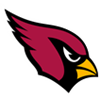
Consider this draft pick an indictment on the last speedy wide receiver the Cardinals took in the second round.
While the Purdue product could presumably cut into Christian Kirk's workload, at least initially Moore projects to vacuum up the leftover snaps from KeeSean Johnson and Andy Isabella in an offense that has painfully lacked a deep threat capable of spreading out the defense.
To be clear, Isabella certainly should have filled that role in Kliff Kingsbury's offense, and indeed the inability to develop the 2019 second-round pick stands as an ominous marker to dull fantasy managers' potential enthusiasm regarding Moore. But the 5-foot-7, 181-pound wideout also presents an absurdly unmatched athletic profile for his size, and has a tremendous Big 10 freshman season on his resume to erase any sort of workout warrior façade. Injuries limited Moore to just seven games over the past two seasons -- a troubling number that will do nothing to erase the notion his frame can't handle the professional level -- but it's undeniable Moore presents a uniquely different element to an already dangerous receiving crops headlined by DeAndre Hopkins and A.J. Green.
It's just hard to have faith in Moore developing into a capable three-down weapon when Kingsbury and company so badly mangled Isabella. At least the Cardinals can take comfort knowing Moore "could" be a useful and consistent playmaker, unlikely their NFC West brethren.
D'Wayne Eskridge (56th overall), Seattle Seahawks 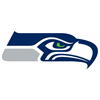
This was certainly...an interesting pick. Look, there's places to discuss the merits for drafting a No. 3 wide receiver, at best, when you have an objectively miserable offensive line, but that's not something we'll do here.
Eskridge is probably one of the better special teams weapons in the entire draft which certainly has value in the NFL, but unless you're playing in specific leagues which account for return yardage, it's not exactly a plus for fantasy purposes.
The redshirt senior was a big play waiting to happen at Western Michigan last season, but given his age (turned 24 in March), 784 yards and eight touchdowns in just six games means a little less than what you might think. You're supposed to dominate younger, lesser corners after five years at the collegiate level. Taking Eskridge this high means the Seahawks are betting those skills will immediately translate to the NFL. That doesn't mean fantasy managers need to, however.
Tutu Atwell (57th overall), Los Angeles Rams 
The more the Rams make draft picks, the more I understand why they are so eager to trade them away.
Squint hard enough and you can see the thought process for this reach. After all, an offense that taxes defenses horizontally the way the Rams do can easily manipulate the attacking space with a speed threat such as Atwell, who reportedly ran a 4.35 40-yard dash at his pro day. It's pretty easy to envision the threat of a jet sweep involving Atwell, and hey, he was a pretty good high school quarterback his senior year too if you want to pretend he has value in gimmick plays.
But it's impossible to ignore his rail-thin frame (5-foot-9, 155 pounds) in this equation which is the crux of the issue. Put on enough weight to survive a NFL season and Atwell risks losing his trademark straight-line speed. Play at his current weight and he risks a whole lot more than a loss of speed.
I'm not really trying to nag on the Seahawks and Rams with their respective selections. But from a fantasy perspective, it's really hard to look at either pick as anything more than a mid-to-late roll-of-the-dice in dynasty formats.
Terrace Marshall (59th overall), Carolina Panthers 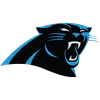
Finally a wide receiver to be excited about. If it wasn't apparent in Round 1, Marshall rejoining his old college LSU offensive coordinator, Joe Brady, confirms 2021 as the year of reunions. That the Panthers managed to trade back twice and still get arguably a first-round talent speaks volumes regarding how the league views Marshall's injury history.
Virginia Zakas of The Athletic reported the 20-year-old may have suffered a Jones fracture his sophomore season at LSU, and before that he also dislocated his ankle which caused a fibula fracture his senior year of high school. Two injuries of that severity level in the span of four years is never a good sign, and it's even more pronounced considering we got vague reports from NFL teams worried about his "lower body issues" at the NFL's medical combine early this offseason.
If Marshall manages to stay healthy, however, it's pretty easy to envision the lanky wideout seamlessly fitting into the offense, whether it be in the slot as a direct replacement to Curtis Samuel or as an outside option with DJ Moore or Robby Anderson slotting inside. Neither of those aforementioned options have a similar catch radius to Marshall which makes me think junior could be a tantalizing red-zone threat for new starting quarterback, Sam Darnold. Christian McCaffrey will rightfully be utilized heavily in that capacity, but the Panthers really just don't have many conventional red-zone threats, making Marshall a convenient target.
It's hard to really quantify how fantasy managers should view the reported injury concerns, but there's a very obvious risk-reward in Marshall's trajectory should he stay healthy.
Josh Palmer (77th overall), Los Angeles Chargers 
This feels like a nice marriage between offensive scheme and player. Palmer's not the fastest nor does he have the best build to play outside, but he knows how to get open and seems to have the necessary route-running chops to create pass-catching opportunities.
There's legitimate questions regarding his athleticism and how it will translate to the NFL level, but the senior did lead the SEC with 21.0 yards-per-reception in 2018, so it's not as if he's molasses slow. And even if he was, Palmer doesn't have to look much farther than teammate Keenan Allen to learn the tricks of the trade.
There's hardly been an inkling about a possible contract extension for Mike Williams, who is currently on the final year of his rookie deal, so dynasty managers looking at Palmer could be buying low on a major piece of a Justin Herbert-led offense in the near future.
Dyami Brown (82nd overall), Washington Football Team 
Washington has retooled its receiving corps in a big way, first signing Curtis Samuel in the offseason and now adding a speedy threat in Brown.
Back-to-back 1,000-yard seasons at North Carolina underscore Brown's deep threat capability, but there's far too many times he catches the ball with his body or just outright drops a wide open opportunity. Many people had those same complaints about Will Fuller throughout the draft process, and while injuries ended his tenure with the Texans prematurely, few bring up his pass-catching technique now, so it's an easily correctable thing, but one to monitor never the less.
The depth chart behind Samuel and star wide receiver Terry McLaurin is definitely muddled, as Adam Humphries, Cam Sims and Steven Sims could all see playing time. However if Washington prioritizes explosiveness in its attack, Brown will undoubtedly be poised to take advantage.
Amari Rodgers (85th overall), Green Bay Packers 
The Packers gave up a fourth-round pick to move up just seven spots -- a stunning compensation, but one that perhaps indicates the level of impact Rodgers could have this season.
A three-year starter at Clemson, Rodgers is densely built at 5-foot-9, 212 pounds and tremendously dangerous after the catch. A versatile special teams option, the 21-year-old finally broke out in his senior season to the tune of 77 receptions, 1,020 yards, seven touchdowns and first-team All-SEC honors.
With a bevy of big-bodied pass catchers such as Allen Lazard, Marquez Valdes-Scantling and to some extent, Davante Adams, Rodgers represents a flash from the past; a walking Randall Cobb clone with slightly less quick-twitch ability in space.
If Rodgers can build a connection early in training camp, whether it's with his ironically similar namesake, or Jordan Love, there's the possibility the Clemson star could be a sneaky starting option in the slot, and thus, a possibly redraft candidate in deeper leagues.
Nico Collins (89th overall), Houston Texans 
Much like the Packers, the Texans decided to add a different dimension to their receiving room, grabbing the 6-foot-4 behemoth out of Michigan to compliment their collection of quick and nimble wideouts.
Collins opted out this past season so there's considerably less hype than one would imagine, but a reported 4.45 40-yard dash at 215 pounds should be a wakeup call for many. A strong, big bodied target, the 22-year-old is already great at using his frame to ward off defenders, and he also shows a tremendous propensity to create separation at the football's highest point. You wish he'd be a little more agile after the catch, but Collins can create such a wide target that it's less of an issue.
Even if Deshaun Watson were to play, the Texans are simply a bad football team, and it's entirely reasonable to assume they could prioritize developing their youth in what surely will amount to a lost season. That's not to say Brandin Cooks, Randall Cobb and Keke Coutee won't make their respective impacts, but it's pretty easy to envision a scenario where Collins is given every opportunity to either sink or swim.
Anthony Schwartz (90th overall), Cleveland Browns 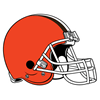
Schwartz reportedly ran a 4.25 40-yard dash at his pro day, but lack of standout play at the collegiate level forced him to tumble down to the third round.
A world-class sprinter can be especially useful for an offense, but whether it be Auburn's anemic passing attack or Schwartz's limitations as a route runner, he never recorded more than 650 receiving yards over his three collegiate seasons, an averaged a paltry 12.2 yards-per-reception over the course of his career.
Should Odell Beckham (knee) return to form there's no immediate need for Schwartz within the Browns offense. However that type of speed can easily be used as a decoy which should carve out some guaranteed snaps for the 20-year-old.
Tight End
Pat Freiermuth (55th overall), Pittsburgh Steelers 
The hometown product from Penn State seemed like a natural fit for the Steelers. A sturdy pass catcher and even more dependable, Freiermuth lacks the "wow" athletic factor that a number of tight ends have presented in past drafts, but more than makes up for it with consistency.
A season-ending shoulder injury, one that also kept him from testing at his pro day, ruined what was shaping up to be a solid year (23 catches, 310 yards, one touchdown through four games) for the junior, and could be possibly something to monitor if he gets off to a slow start at training camp.
A Kyle Rudolph-type career trajectory could certain be in the cards for Freiermuth especially with a team that is known to favor its tight ends like the Steelers, but he's probably not in consideration for most redraft leagues with Eric Ebron settled in as the starter.
Hunter Long (81st overall), Miami Dolphins 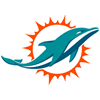
Long certain has the accolades as a pass catcher, posting back-to-back seasons with at least 500 receiving yards at Boston College, but this is a brutal landing spot with Mike Gesicki and Durham Smythe pretty entrenched as quality players.
The draft pedigree alone indicates Long should push out Smythe from two tight-end sets in due time, but there's little to get excited about from a fantasy perspective unless Gesicki prices himself out of Miami this year.
Tommy Tremble (83rd overall), Carolina Panthers 
A useful blocker, Tremble probably won't provide much from a pass-catching perspective, especially with Dan Arnold and Ian Thomas around to platoon that role.
If you know someone who absolutely loves Virgil Green, they'll also love Tremble. Which is to say, no one is going to love Tremble.
Tre' McKitty (97th overall), Los Angeles Chargers 
Jared Cook replaced Hunter Henry, who signed a big-ticket deal with the Patriots to kickstart free agency, but the long-time veteran is only on a one-year deal, opening up the possibility for McKitty to be a possible dynasty target.
A capable pass catcher at Florida State, McKitty moved to Georgia as a graduate transfer and was used sparingly, catching just six passes, but for an eye-popping 108 yards. In order for McKitty to have any utility he'll first have to separate himself as a blocker from his teammate, 6-foot-8 Donald Parham, who parlayed a bit role in the Chargers offense last season into 10 catches for 159 yards and three touchdowns.










